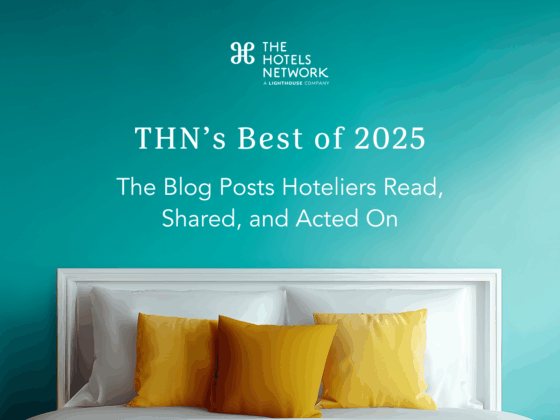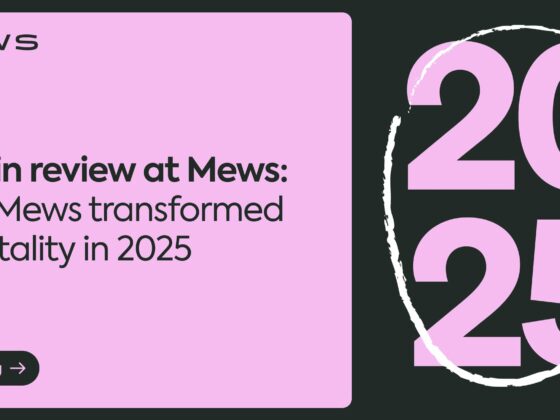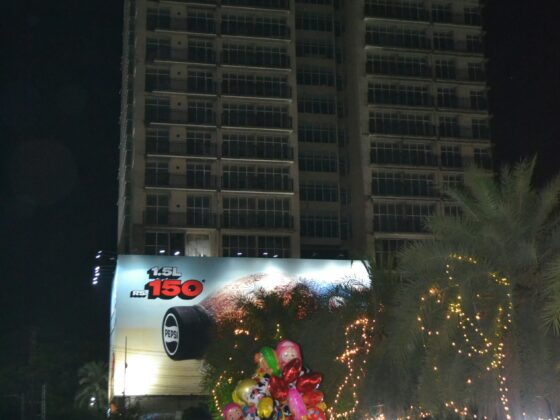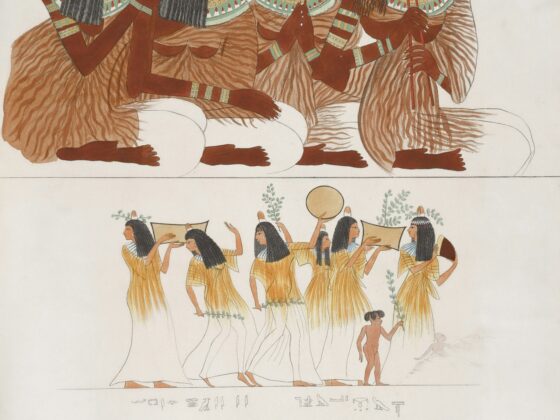
Artificial Intelligence isn’t just entering the hospitality industry; it’s already transformed the lobby while we were busy with guests. The change is fast, moving from simple automation to predictive analytics, hyper-personalization, and cognitive understanding. This AI revolution offers exciting potential and some anxiety for Marketing, Sales, and Revenue Management leaders.
On one hand, AI promises unprecedented efficiency, deeper customer insights, and new ways to drive revenue. On the other hand, fears abound: Will sophisticated algorithms render human expertise obsolete? Will roles focused on strategy, creativity, and relationships be fundamentally diminished?
This isn’t just another tech trend; it’s a significant shift in how hotels create and sustain value. This post argues that AI’s rise doesn’t mean the end for skilled commercial pros. Instead, it calls for a significant change from routine tasks to strategic thinking, creativity, and human skills. We’re at a crossroads, ready to reinvent. The challenge is redefining how Marketing, Sales, and Revenue Management can evolve to coexist with AI and utilize it to add key strategic value in this new era.
The AI Tsunami: Understanding the Impact on Commercial Functions
Ignoring the waves AI is already making across hotel operations is impossible. Its capabilities are tangible, automating and enhancing tasks that once consumed significant human hours within commercial departments. This isn’t science fiction; it’s the operational reality in increasingly tech-savvy hotels today:
- In Marketing: AI tools execute targeted ad campaigns across multiple platforms, perform sophisticated audience segmentation for personalized messaging, generate drafts for social media posts or email newsletters, compile detailed performance reports in minutes, and tirelessly monitor brand sentiment across the web.
- In Sales: AI excels at scoring leads to prioritize follow-ups, automating initial outreach sequences, ensuring CRM systems are meticulously updated, powering chatbots to handle routine guest inquiries instantly, and even generating standardized proposal templates based on client parameters.
- In Revenue Management: Dynamic pricing algorithms adjust rates in real time based on demand signals, AI assists in generating forecasts with greater granularity, competitor rate scraping happens automatically, complex data is visualized in intuitive dashboards, and routine channel distribution tasks are streamlined.
Seeing this list, the allure of efficiency is undeniable. And indeed, AI adoption has surged. Recent studies, including reports from McKinsey, show adoption rates climbing significantly, with well over 70% of organizations globally now using AI in at least one business function. The tools are here, and they are being implemented rapidly.
But here lies the critical challenge: The Efficiency Trap. Despite widespread adoption, a surprisingly large number of businesses, potentially as high as three-quarters according to some analyses, like those from McKinsey, are struggling to achieve and scale meaningful value or demonstrate significant financial ROI from their AI investments. Why? Many fall into the trap of using this revolutionary technology to do the same old things faster or cheaper. They automate existing workflows without fundamentally rethinking the strategy behind them.
This focus purely on incremental efficiency gains – using tomorrow’s technology to solve yesterday’s problems – is not just limiting; it’s dangerous. It misses AI’s enormous potential to unlock new insights, enable unprecedented personalization, and drive strategic transformation. Furthermore, this approach directly threatens the roles primarily focused on executing precisely those tasks that are now being automated. When AI’s value is perceived only through the lens of cost-cutting and task automation, the humans performing those tasks inevitably appear replaceable. The real opportunity lies not in merely doing things faster, but in doing fundamentally better and smarter things, guided by AI yet driven by human strategy.
The “Candle Maker” Opportunity: Redefining Value Beyond Automation
To understand the opportunity before us, let’s step back to 1879. When Thomas Edison unveiled his incandescent light bulb, an entire industry built on wax and wicks faced disruption and the chilling prospect of extinction. Candlemakers didn’t just fear losing market share; they feared becoming completely irrelevant as their primary function—illumination—was rendered obsolete by superior technology. Does that uncertainty about the future echo the current climate surrounding AI in hotel commercial departments?
However, the candle industry’s story didn’t end there. Faced with this existential threat, the most forward-thinking players underwent a fundamental transformation. They recognized that their value was no longer solely about providing lumens. Instead, they pivoted, finding new purpose in creating ambiance, setting a mood, and enhancing an experience. Candles evolved from a basic utility to a product associated with atmosphere, romance, and ritual. They didn’t just survive; they found a new, arguably richer, market by redefining their value proposition.
This “Candle Maker Moment” is where hotel commercial teams stand today. With AI capable of handling many of the functional, repeatable tasks (as outlined in the previous section), the question becomes: What is the unique, higher-value “ambiance” that human commercial leaders can now focus on creating? What contribution transcends mere automation?
The answer lies in a decisive shift in focus. It’s about consciously moving away from doing the tasks that AI can perform efficiently and elevating the human role to strategic leadership and insight interpretation. It’s about leveraging AI not as a replacement, but as a powerful tool that frees up human capacity for contributions that remain uniquely human. AI adeptly handles the ‘what’ – processing vast datasets, executing defined tasks, and identifying patterns at scale. The indispensable human element, however, focuses squarely on the ‘why’ and the ‘how’ – setting the overarching strategy, interpreting the nuances behind the data, asking the critical questions, fostering creativity, building genuine relationships, making complex ethical judgments, and ultimately, guiding the intelligent application of technology to achieve meaningful business outcomes and craft truly exceptional guest experiences. The opportunity isn’t to compete with AI on tasks, but to harness it to amplify human intelligence and strategic impact.
The New Commercial Landscape: Evolved Roles for Marketing, Sales & Revenue
Having established the need for reinvention, akin to the candle industry finding its “ambiance,” let’s explore what these evolved commercial roles look like in practice. How do Marketing, Sales, and Revenue Management professionals shift from task execution to strategic value creation in an AI-augmented hotel environment?
Marketing → Brand Experience Architects & Storytellers
The Old Focus ( Increasingly AI-Driven): Historically, much hotel marketing revolved around executing campaigns across various channels, managing media buys, basic segmentation, and tracking performance metrics. While vital, these are precisely the areas where AI now excels in speed, scale, and data processing.
The New Focus (Human-Led Strategy & Creativity): As AI takes over campaign delivery and reporting mechanics, the human marketer evolves into a strategic guardian and creator of the brand’s soul. This new role centers on:
- Deep Guest Empathy: Moving beyond demographics to understand diverse guest segments’ unspoken desires, motivations, and emotional drivers. It’s about uncovering the why behind guest choices that data alone might not reveal.
- Crafting Unique Brand Narratives: Developing compelling stories that resonate emotionally, differentiate the hotel, and articulate its unique value proposition in a crowded market. This requires creativity, cultural understanding, and authenticity – qualities AI struggles to genuinely replicate.
- Curating Holistic Guest Experiences: Orchestrating seamless and memorable journeys that integrate online interactions (website, social media, pre-arrival communication) with offline touchpoints (lobby ambiance, staff interactions, room details). The marketer becomes an architect of the overall brand feeling.
- Forging Strategic Partnerships: Identifying and cultivating relationships with complementary brands, local businesses, influencers, or communities that enhance the guest experience and authentically broaden reach.
- Ethical AI Deployment: Guiding the responsible use of AI in marketing – ensuring fairness in segmentation, transparency in communication (e.g., chatbots), protecting guest data privacy, and avoiding algorithmic bias that could damage the brand’s reputation.
- Interpreting Complex Sentiment & Trends: Looking beyond AI-generated sentiment scores to understand sarcasm, cultural nuances, emerging micro-trends, and the deeper context of guest feedback. This requires human judgment to separate signal from noise.
- Fostering Genuine Community: Building and nurturing online and offline communities around the brand, encouraging loyalty and advocacy from shared values and experiences, not just points programs.
- Driving High-Level Brand Strategy: Setting the overall vision for the brand, defining its positioning, and ensuring all commercial activities align with this strategic direction.
The Uniquely Human Value Add: The evolved marketer moves from managing channels to managing meaning. Their irreplaceable value lies in creating genuine emotional connections and fostering deep-seated brand loyalty, outcomes rooted in human empathy, creativity, storytelling, and strategic relationship-building that AI, for all its power, cannot authentically manufacture.
Sales → Strategic Growth Partners & Relationship Builders
The Old Focus ( Increasingly AI-Driven): Traditional sales activities often involved high volumes of outreach, lead qualification based on simpler metrics, managing transactional deals, and significant time spent on administrative tasks like CRM updates. AI tools rapidly take over lead scoring, automated initial communication, proposal generation for standard requests, and data entry, making purely transactional sales roles more vulnerable.
The New Focus (Human-Led Strategy & Connection): As AI handles the more repetitive aspects of the sales funnel, the human salesperson evolves into a high-value consultant and relationship architect. Their focus shifts dramatically towards:
- Building Deep, Trust-Based Relationships: Especially crucial in the B2B, corporate, and group segments. This involves understanding clients’ businesses, building personal rapport, and becoming a trusted advisor, not just a vendor.
- Navigating Complex Negotiations: Handling intricate deals with multiple variables (room blocks, F&B minimums, tech requirements, flexible terms) requires sophisticated negotiation skills, strategic thinking, and finding mutually beneficial solutions – areas where human judgment excels.
- Identifying Nuanced Client Needs: Going beyond stated requirements to uncover the client’s underlying needs, potential challenges, and strategic objectives requires active listening, insightful questioning, and contextual understanding.
- Solution Selling: Positioning the hotel’s offerings not just as products, but as integrated solutions tailored to solve specific client problems or achieve their event/business objectives. This requires a deeper understanding of the client’s world.
- Leveraging AI Insights for Hyper-Personalized Human Interaction: Using AI-generated data (e.g., client history, preferences, potential needs) to inform and enhance human-to-human conversations, making interactions more relevant, insightful, and impactful. AI provides the intel; humans provide the tailored delivery and connection.
- Strategic Account Management: Focusing on key accounts’ long-term value and growth potential, proactively anticipating needs, and fostering enduring partnerships rather than just focusing on the next booking.
- Identifying New Market Segments & Opportunities: Utilize AI analysis to spot emerging trends, underserved niches, or potential new client profiles, then use human insight and networking to explore and develop these opportunities.
The Uniquely Human Value Add: While AI can optimize processes and identify leads, it cannot replicate the nuanced art of complex negotiation or the deep trust required for significant B2B partnerships. The evolved salesperson’s irreplaceable value lies in closing complex, high-value deals and building resilient, long-term client relationships – outcomes fundamentally reliant on human intuition, empathy, strategic problem-solving, and the establishment of genuine trust.
Revenue Management → Commercial Strategists & Profit Optimizers
The Old Focus ( Increasingly AI-Driven): The traditional Revenue Manager often spent considerable time on manual data entry, generating standard reports, monitoring competitor pricing for tactical adjustments, and managing inventory across channels based on established rules. AI and sophisticated Revenue Management Systems (RMS) are now automating dynamic pricing, basic forecasting, competitor rate scraping, and routine reporting with increasing precision and speed.
The New Focus (Human-Led Strategy & Oversight): As algorithms take over the minute-by-minute tactical adjustments, the human Revenue professional ascends to a more strategic, holistic role, becoming a central figure in the hotel’s overall commercial success. Their focus shifts to:
- Holistic Total Revenue Strategy: Expanding beyond rooms to develop and implement strategies that maximize profitability across all revenue streams – including Food & Beverage, Meetings & Events, Spa, Retail, and ancillary services. This requires a comprehensive understanding of the entire hotel business.
- Interpreting AI Forecasts & Challenging Assumptions: Use AI-generated forecasts and pricing recommendations as powerful input, but critically evaluate them. This involves understanding the ‘why’ behind the AI’s suggestions, overlaying qualitative insights (e.g., impact of a local event not yet in the data, competitor strategy shifts), and challenging assumptions to ensure alignment with broader business goals.
- Complex Market Analysis: Moving beyond simple comp set analysis to understand deeper market dynamics, macroeconomic trends, feeder market shifts, evolving guest segment behaviors, and long-term competitive threats or opportunities that require strategic foresight.
- Strategic Channel Mix Optimization: Making high-level decisions about the optimal balance between direct bookings, OTAs, GDS, and other channels, considering not just revenue but also distribution costs, guest acquisition cost (CAC), and long-term customer value (LCV).
- Guiding AI Tool Development & Validation: Providing crucial human oversight for the RMS and other AI tools. This includes defining strategic parameters, validating outputs against real-world conditions, identifying potential algorithm biases, and collaborating with tech providers to refine tools for better alignment with hotel strategy.
- Ensuring Ethical Pricing Strategies: Applying human judgment to pricing decisions, considering factors like fairness, transparency, brand reputation, and long-term guest relationships, rather than solely maximizing short-term yield, especially during high-demand periods or crises.
- Driving Cross-Departmental Profit Maximization: Collaborating closely with Marketing, Sales, Operations, and Finance to ensure alignment on pricing, promotions, inventory management, and cost control, fostering a culture of total profit optimization throughout the hotel.
The Uniquely Human Value Add: While AI can calculate optimal price points based on data, it cannot set the overarching commercial vision or make nuanced strategic trade-offs considering the entire business ecosystem. The evolved Revenue professional’s critical value lies in setting the strategic commercial direction, interpreting complex scenarios beyond the algorithm’s scope, and ensuring sustainable, long-term profitability through insightful analysis and cross-functional leadership. They become the strategic mind guiding the AI-powered engine.
The Rise of the Integrated Commercial Leader
The evolution of Marketing, Sales, and Revenue Management into more strategic, insight-driven functions highlights a critical point: the traditional silos separating these departments become increasingly counterproductive in an AI-powered world. AI thrives on unified data and interconnected insights; a promotional strategy devised by Marketing impacts demand patterns seen by Revenue Management, and pricing decisions affect the deals Sales can close. Optimizing commercial performance truly requires a cohesive, integrated approach.
This necessity paves the way for the potential emergence of a new, pivotal role: the Integrated Commercial Leader (perhaps titled Chief Commercial Officer, Head of Commercial Strategy, or VP of Integrated Growth). This role transcends the traditional boundaries of the individual departments.
- Purpose: The core function of this leader is not to micromanage the specialized functions but to orchestrate them. They focus on synthesizing the strategies, insights, and data flowing from the evolved Marketing (Brand Experience), Sales (Growth Partnerships), and Revenue (Profit Optimization) teams.
- Function: This leader ensures alignment across all commercial activities, resolves potential conflicts between departmental objectives (e.g., balancing occupancy targets with rate integrity), guides resource allocation based on holistic ROI, and champions a unified customer-centric approach. They interpret the comprehensive picture painted by AI analytics, overlaying it with market context, brand values, and long-term business objectives.
- Driven By: While heavily reliant on AI for data processing and predictive insights, this role is fundamentally driven by human strategic oversight. They ask the overarching questions: Are our collective efforts maximizing total profitable revenue? Is our commercial strategy aligned with our brand promise? Are we building sustainable growth?
The integrated commercial leader acts as the conductor, ensuring that the powerful instruments of marketing, sales, and revenue management play in harmony, guided by AI’s insights, and ultimately create a symphony of commercial success directed by human strategy and vision. This integration is key to unlocking AI’s full transformative potential across the hotel’s commercial engine.
Building the Future-Ready Commercial Team: From Data Access to Strategic Action
The evolution of commercial roles into strategic powerhouses – Brand Experience Architects, Strategic Growth Partners, and Commercial Profit Optimizers – is not merely a conceptual shift. It requires tangible tools and a supportive organizational structure. The foundation upon which these evolved roles are built is access to transparent, accurate, and integrated data. Without a powerful Hotel Business Intelligence (BI) tool that consolidates data from the PMS, RMS, CRS, F&B systems, marketing platforms, and other relevant sources, these new roles cannot function effectively. Meaningful insights, deep relationship understanding, and sound strategic decisions all stem from the ability to easily access, analyze, and interpret comprehensive data. Investing in a robust Hotel Business Intelligence System is not optional; it’s a prerequisite for enabling this transformation.
With that foundation in place, building the future-ready commercial team requires deliberate effort in several key areas:
Cultivating the Right Leadership Mindset: Success starts at the top. Leaders must fundamentally shift their perspective on AI, viewing it not primarily as a tool for cutting costs or reducing headcount but as a powerful enabler of human potential. The focus must be on augmenting the team’s capabilities, making people more innovative and strategic, and freeing them from mundane tasks to focus on higher-value work. This mindset shapes investment priorities and fosters a culture where employees see AI as a collaborator, not a competitor.
Investing Deliberately in People: An augmented team requires new skills. Hotels must commit to upskilling and reskilling their commercial professionals. This isn’t just about basic software training; critical development areas include:
- Data Literacy: The ability to understand, interpret, question, and communicate insights derived from data (provided by the BI tools and AI).
- Strategic Thinking: Developing the capacity to see the bigger picture, anticipate market shifts, and formulate long-term plans.
- AI Tool Mastery: Understanding how to effectively use and interact with specific AI applications relevant to their function, including interpreting outputs and providing necessary human input or oversight.
- Enhanced Communication & Collaboration Skills: Crucial for working effectively across departments and translating complex insights into actionable strategies.
Fostering Deep Collaboration: The era of siloed commercial departments must end. Marketing, Sales, and Revenue Management need to operate as a cohesive unit. A shared understanding derived from Hotel Business Intelligence tools and AI-generated insights can be a powerful common language, facilitating smoother collaboration, aligned goals, and integrated strategies, potentially guided by an Integrated Commercial Leader. Breaking down these internal barriers is essential for maximizing overall commercial effectiveness.
Embracing Agility and Adaptability: In a rapidly changing landscape powered by AI, the ability to predict the future perfectly is less critical than the ability to adapt quickly. As highlighted in the background insights, the most resilient organizations focus on flexibility and responsiveness. Commercial teams must be empowered to pivot strategies based on new insights, whether surfaced by AI or identified through human observation and interpretation. This means fostering a culture that values experimentation, learning from results (both good and bad), and making timely adjustments rather than rigidly adhering to outdated plans.
Building this future-ready team is an investment in the hotel’s long-term strategic advantage. It ensures that human talent remains the driving force behind commercial success, amplified, not replaced, by technology.
Conclusion: Embrace Reinvention, Not Extinction
The rise of Artificial Intelligence is undeniably reshaping the commercial landscape of the hospitality industry. As we’ve explored, its power to automate tasks and process data is profound, leading many to question the future of traditional Marketing, Sales, and Revenue Management roles. However, as history teaches us, technological disruption doesn’t always mean extinction; more often, it demands evolution.
This is our industry’s “Edison Moment.” We can choose to be the candlemakers predicting doom as the light bulb illuminates the world, or we can redefine our value, finding our unique “ambiance” in a world increasingly driven by algorithms. The path forward lies not in resisting AI but in embracing it as a catalyst for elevating human potential, shifting focus from routine execution to strategic insight, creativity, and genuine connection.
A critical question remains: Does this transformation mean fewer commercial roles within a hotel group? Potentially. Perhaps more accurately, it signifies that each evolved role – the Brand Experience Architect, the Strategic Growth Partner, the Commercial Profit Optimizer – augmented by AI handling the mundane tasks, will possess vastly increased capacity. One individual may be equipped to manage broader strategic scopes, nurture deeper client relationships across more segments, or oversee the commercial strategy for a larger portfolio of hotels. Alternatively, the same-sized team, empowered by AI, could drive significantly greater growth, attracting more guests, cultivating more high-value relationships, and supporting expansion into new markets or properties. The key takeaway is the amplification of human capability and strategic impact per person.
Ultimately, the winners in this new era won’t be the hotels that purchase AI tools off the shelf. The true victors will be those organizations that deeply integrate AI into their commercial fabric, using it to empower their people, unlock new strategic value, and redefine what’s possible in hospitality. They will focus on making their teams smarter, more insightful, and more effective, leveraging technology to amplify uniquely human strengths.
The transformation is underway. Don’t wait to react. Start redefining your commercial roles today. Begin the conversations, invest in the necessary tools and training, and consciously design the future where human ingenuity and artificial intelligence collaborate to create unparalleled success for your hotel. Find your ambiance.








